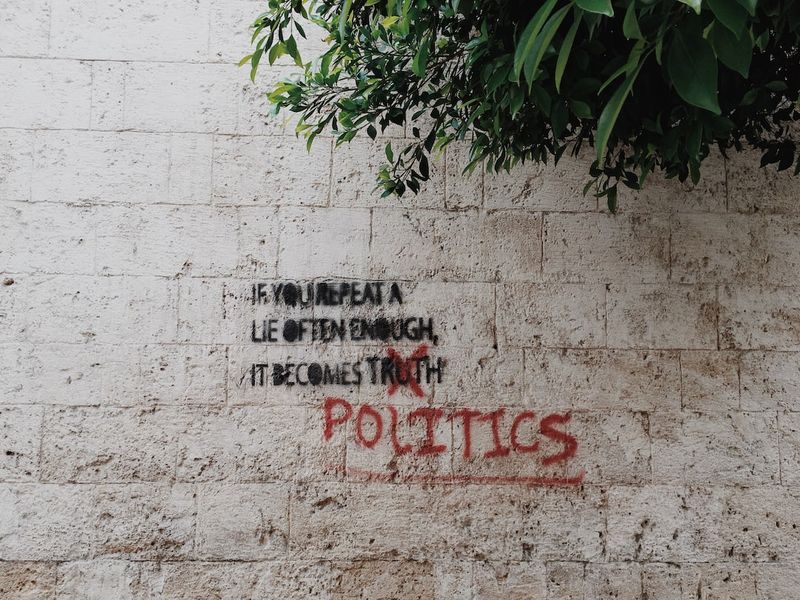Table of Contents
Repression and Violence Cast Shadow over Zimbabwe‘s August Election
August 3, 2023 | By
In the lead-up to Zimbabwe‘s August election, fears regarding the state of democracy and human rights in the country continue to escalate. Abusive laws and partisan government agencies have cast a dark shadow over the possibility of a free and fair vote, leaving citizens and international observers deeply concerned.
Background: Politicized Power Struggle
Over the past few years, Zimbabwe has been embroiled in a politicized power struggle that has stifled progress and left many Zimbabweans disillusioned. The ruling party, ZANU-PF, has maintained its grip on power for decades, often through undemocratic means, while the opposition parties have faced various forms of repression and violence.
In recent months, the government has intensified its crackdown on dissent, passing abusive laws that restrict fundamental rights and freedoms. These laws not only curtail free speech and assembly but also target opposition parties and civil society organizations, rendering them unable to operate effectively.
Repression and Violence Ahead of the Election
A report released by Human Rights Watch titled “Crush Them Like Lice” highlights the alarming levels of repression of civil and political rights in Zimbabwe leading up to the August election. The report documents numerous cases of harassment, intimidation, and violence against opposition politicians, activists, and ordinary citizens.
The ruling party has utilized partisan government agencies, such as the police and the electoral commission, to further its agenda and undermine the opposition. This abuse of power not only erodes trust in the electoral process but also creates an environment of fear and violence, making it difficult for opposition parties to campaign freely and for citizens to express their political beliefs without fear of persecution.
The Importance of Free and Fair Elections
Free and fair elections are a cornerstone of democracy and essential for ensuring a government truly represents the will of its people. When elections are marred by repression and violence, the legitimacy of the government and its policies are called into question, exacerbating social tensions and hindering progress.
Zimbabwe, a country with great potential and a remarkable history, cannot afford to continue on this path of repression and violence. It is crucial for the international community to closely monitor the situation and exert pressure on the government to respect human rights and ensure a transparent and credible electoral process.
Editorial: The Need for International Intervention
The escalating repression and violence in Zimbabwe demand urgent international intervention. The international community, including regional organizations such as the African Union and the Southern African Development Community (SADC), cannot turn a blind eye to the deteriorating state of democracy and human rights in the country.
Strong statements and condemnation alone are not enough. It is time for concrete actions to hold accountable those responsible for the abuses and to exert pressure for meaningful reforms. Sanctions, targeted measures, and diplomatic engagement should be carefully crafted to avoid harming the most vulnerable populations while sending a clear message to the government that its actions will have consequences.
Furthermore, advocating for the deployment of international observers and election monitoring missions can help ensure that the electoral process is transparent and credible. The presence of impartial observers can act as a deterrent to violence and provide an unbiased assessment of the election‘s fairness.
Advice for Zimbabwean Citizens
Despite the challenges they face, Zimbabwean citizens should not lose hope and should remember that their voices and votes matter. While the environment may be daunting, it is essential to come together as a society, support the opposition, and continue to peacefully advocate for democratic reforms.
Engaging in civil society organizations, human rights groups, and local community initiatives can be a powerful way to shape and influence change. By documenting abuses, supporting victims, and raising awareness, citizens can contribute to exposing the government’s repressive tactics and creating pressure for long-term change.
Additionally, it is crucial for citizens to exercise their right to vote. While the odds may seem stacked against the opposition, every vote counts, and a strong turnout can send a powerful message to the ruling party and the international community that Zimbabweans demand a democratic and inclusive government.
The road to democracy in Zimbabwe may be long and challenging, but history has shown that sustained pressure and collective action can lead to transformative change. By staying resilient, organized, and committed to the principles of democracy, Zimbabweans can shape a brighter future for themselves and their nation.

<< photo by Brian Wertheim >>
The image is for illustrative purposes only and does not depict the actual situation.
You might want to read !
- “The United States Takes Charge: Leading the Security Council Through Perilous Times”
- Bangladesh’s Political Unrest: Exposing the Brutality of Excessive Force
- The Erosion of Press Freedom in Cambodia: A Disturbing Clampdown on Independent Media
- Endemic Corruption and Authoritarianism Mar King’s Grip on Belarus
- Injustice Behind Bars: The Imprisonment of a Saudi Psychiatrist
- Senegal’s Opposition Party Dissolved and Internet Shutdown: A Backlash to Democracy?
- “Examining Russia’s Controversial Use of Cluster Munitions in Ukraine”
- The Rise of Eco-Friendly Toy Vehicles: Moving Beyond Barbie’s Electric Car and Ken’s SUV
- Sudan: A Grim Report Reveals Widespread War Crimes and Slaughter of Innocent Civilians
- Unearthing the Truth: Addressing Discrepancies in the Pylos Shipwreck Investigation
- Addressing Discrepancies: Demanding a Human Rights-Compliant Inquiry into Greece’s Pylos Shipwreck